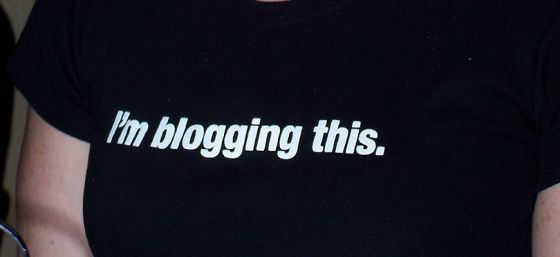So social media blew up this week after Amy’s Baking Company, owned by Samy and Amy Bouzaglo, was featured on Kitchen Nightmares where Chef Ramsey walked away after he felt that the owners of the restaurant were not willing to listen to his critiques. On the show, Amy claimed that the business was hurt by “online bullies” who told lies about them.
After the show aired, the business received national attention and there were several irate posts from the owners on the restaurant’s Facebook pages – one they claim was hacked and the new one they started yesterday. According to the Phoenix Business Journal, one of the owners’ posts stated they were keeping track of who was commenting and that they “will be pursuing action against you legaly, and against reddit and yelp, for this plot you have come together on. you are all just punks.”
Well, what if Samy and Amy wanted to pursue legal action against people who left comments on their Facebook page, Yelp, or Reddit? What would they claim – infliction of emotional distress? Defamation? For the most part, sharing your opinion is protected by the First Amendment. Yelp and Reddit simply provide forums for others to share but they don’t control the content that is posted, so there’s probably not much they could do in regards to those sites themselves.
What about defamation? In Arizona, defamation requires a false statement about the plaintiff, communicated to a third party, that hurts the plaintiff’s reputation. If Samy and Amy filed defamation claims against anyone who created a post about them or their restaurant, the defendants have three main ways to defend themselves.
Defense #1: There’s no defamation if the statement was true.
If you didn’t tell a lie, there can be no defamation. If you make a statement that only contains your opinion and you told the truth about your thoughts and feelings, there can be no defamation.
Defense #2: The only part of the statement that was false was insignificant.
If the only part of your statement that was false was insignificant, there’s no defamation. For instance, if you write a bad review for a restaurant because you didn’t like their XYZ burger but it turns out you ordered the RST burger, that would be a false statement. If the only thing that wasn’t accurate was the name of the item you ordered, but your review of it was true to your experience, that misstatement would be so minor that it wouldn’t qualify as defamation. The part that was the lie likely didn’t hurt the plaintiff’s reputation.
Defense #3: There was no reputational damage.
This is my favorite of the defamation defenses. Essentially this defense says the plaintiff’s reputation is so bad that there’s nothing you could say that would make it worse. This is a very high bar to clear. I suspect you’d have to make a false statement about a modern day Hitler to have a reputation that’s this bad. In most cases, a person can have a really bad reputation but you could make it worse if you told a lie about them and said they kick puppies or molest children.
According to one of Amy’s Baking Company’s Facebook pages, they will be having a grand re-opening on May 21st. It will be interesting to see the reviews from the people who visit the restaurant that night.
If you suspect you’ve been the target of defamation, please contact an attorney in your community. If you want more information about online defamation and the defamation defenses, please check out my book, The Legal Side of Blogging: How Not to get Sued, Fired, Arrested, or Killed.
You can also subscribe to the Carter Law Firm newsletter.
You can connect with me on Twitter, Google+, Facebook, YouTube, LinkedIn, or you can email me.
Please visit my homepage for more information about Carter Law Firm.

